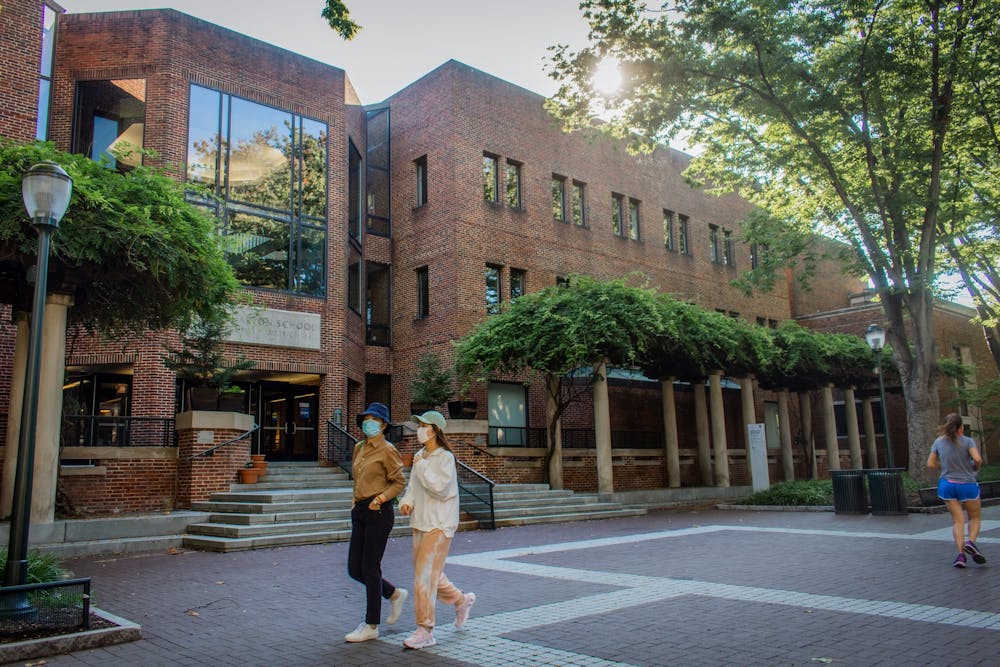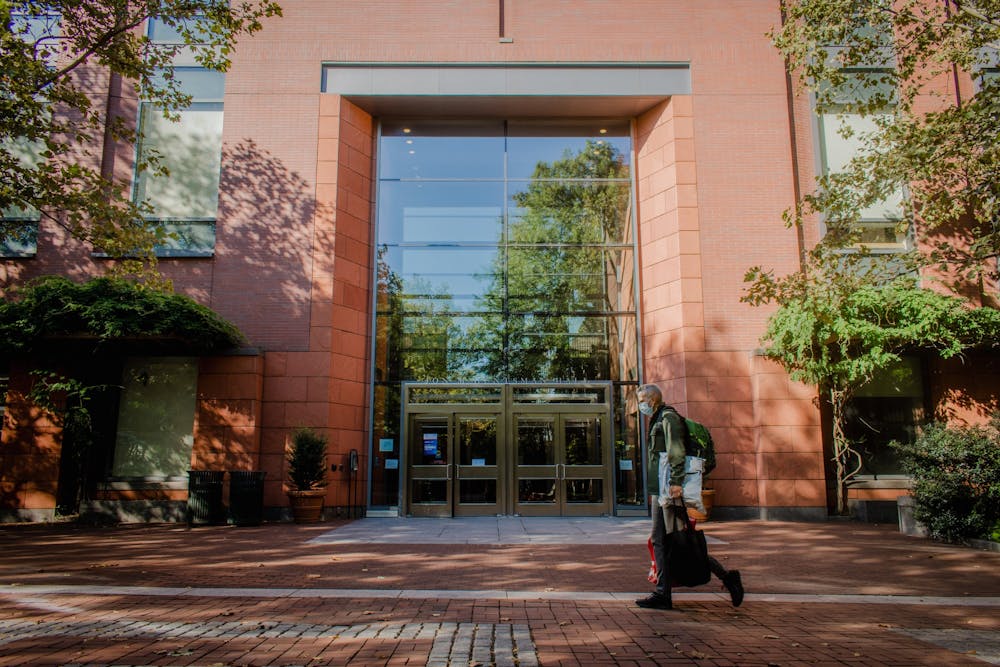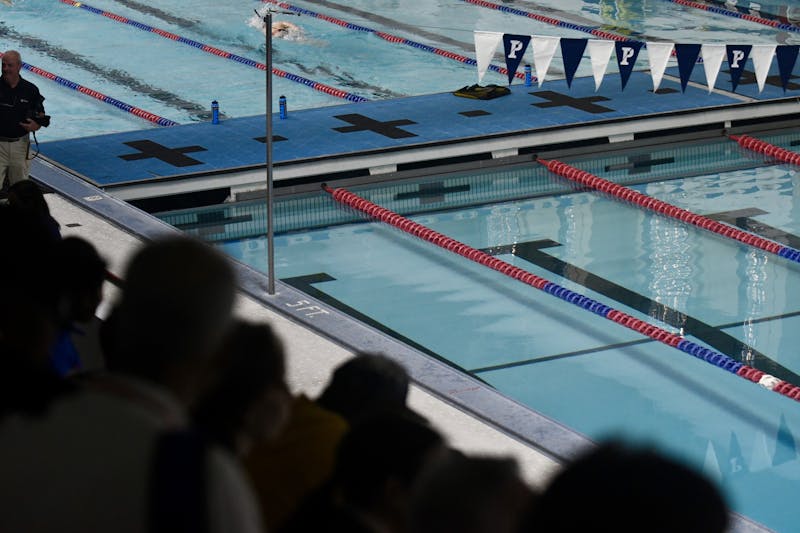
For students paying to attend an MBA program, the in-person experience is crucial to networking and making the most of the short two-year program. Now with the fully remote semester, Wharton MBA students are struggling to connect with other students and contending that the MBA program is not worth the full tuition.
Three weeks after announcing a hybrid fall semester, Wharton Vice Dean Howard Kaufold announced the MBA program would shift to a fully remote model in an email to Wharton's MBA Class of 2021 and 2022 on July 31. Many students are frustrated with the administration's decision to not reduce tuition considering the greatly diminished MBA experience where students can no longer network in-person or take advantage of Wharton-sponsored traveling and co-curricular activities.
For second-year MBA student Graham Hickman, taking Zoom classes was not worth the $40,000 tuition for the fall semester and has decided to take a leave of absence this semester. He added that because the MBA program is more expensive and shorter than the undergraduate program, it seemed more beneficial for him to focus on career exploration and find a fall internship.
Class of 2021 MBA students circulated a petition, which has garnered over 1,000 signatures since its creation on July 25, calling on Wharton administration to begin dialogue with students about tuition relief and compensation during the COVID-19 pandemic. The petition detailed the financial burdens MBA students face due to the pandemic and diminishing value of the program without in-person experiences.
"We undersigned members of the Wharton MBA student body remain in prevalent agreement that virtual coursework, however well executed, does not provide the same educational value as the normal in-person classes that we expected when we enrolled," the petition reads. "Much of the value of the Wharton educational experience comes from interacting with our outstanding faculty in person, engaging in lively discussions with our fellow classmates and learning from each other’s experiences, and hearing from and meeting renowned guest speakers."
Tuition and fees for the Wharton MBA program's 2020-2021 academic year amount to $80,432.
Wharton Dean Erika James virtually met with student representatives of the petition on Aug. 21 and pointed to the Wharton MBA Financial Relief Fund, which was introduced on July 31 and has since granted financial awards to 1,272 MBA students with an average amount of $3,695.
Some students, however, said the relief fund is not enough, calling on Wharton administration to reduce tuition for all students.
Hickman described the relief fund as "insufficient" in addressing students' financial concerns and the greatly diminished value of the fully remote MBA program.
Second-year MBA student Akanksha Bansal agreed, adding, “Not reducing the tuition was definitely very disappointing for me because I know the University is trying its best to sort of give us the same experience, but let’s face it, the experience is never going to be the same.”

Wharton's "Remote Together" initiative was originally intended to make socialization "pods" for students, but was rebranded to only connect students with alumni.
To promote community engagement this fall, Wharton announced a "Remote Together" initiative in July to connect first and second-year MBAs in various cities to study together, prep for interviews, and socialize in "pods," which will also be connected to local alumni.
Since then, Wharton has rebranded the initiative to only connect students with alumni through the Alumni Welcome program. Deputy Vice Dean Maryellen Reilly wrote in an email to The Daily Pennsylvanian that 241 MBA students have been matched with 424 Wharton graduates so far.
Some students like Hickman, however, said they were not aware of such a program to connect with fellow students and alumni. With a total of 1,772 students enrolled in the MBA program, only 14% of students have been matched with a Wharton graduate so far.
Despite administrators' efforts to make the most of virtual learning, many students agreed that the most valuable experiences of the MBA program have been compromised by the pandemic and can only be compensated with a tuition reduction.
"It is much harder to meet new people which, as far as MBA programs go, that is a huge value proposition: expanding your network and meeting new people from different walks of life and different career paths," Hickman said.
Second-year MBA student Eva Almiñana agreed, adding that she is frustrated that she cannot take advantage of leadership ventures and traveling opportunities offered by Wharton, such as the Global Immersion Program and Global Modular Courses, which both grant MBA students the opportunity to study abroad during school breaks. Instead of visiting business hubs around the world, students, this academic year, can take one of the three modified Global Virtual Courses.
“There are so many other aspects of the program that there’s not even a remote possibility that we can take advantage of," Almiñana said. "I cannot help but wonder how much money usually goes into supporting those programs that we can’t even take advantage of, like the GIPs, GMCs, the traveling opportunities, and some of the leadership venture opportunities.”
Other graduate schools at Penn such as Penn Law School, Perelman School of Medicine, and Stuart Weitzman School of Design are conducting a hybrid fall semester for its students.
“[Learning the fall semester would be online] was disappointing at first because this is not what I signed up for, but I also think the University is trying to do the best given the circumstances," Bansal said.
The Daily Pennsylvanian is an independent, student-run newspaper. Please consider making a donation to support the coverage that shapes the University. Your generosity ensures a future of strong journalism at Penn.
Donate






